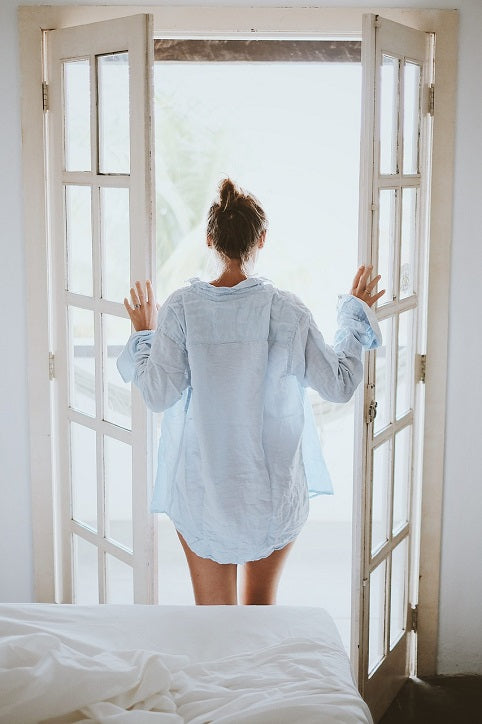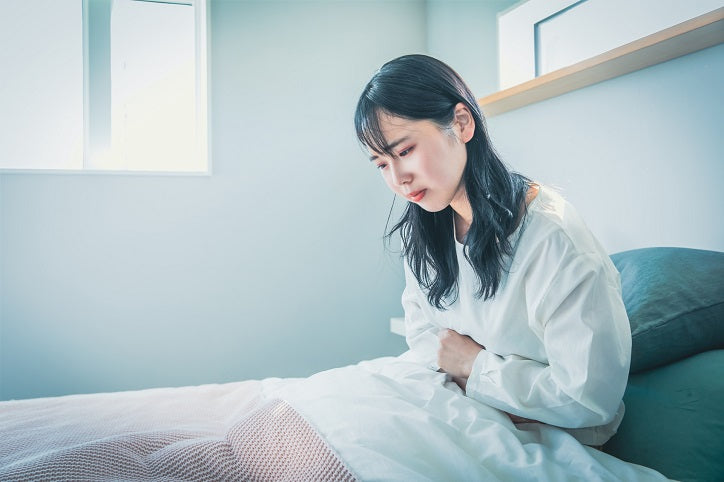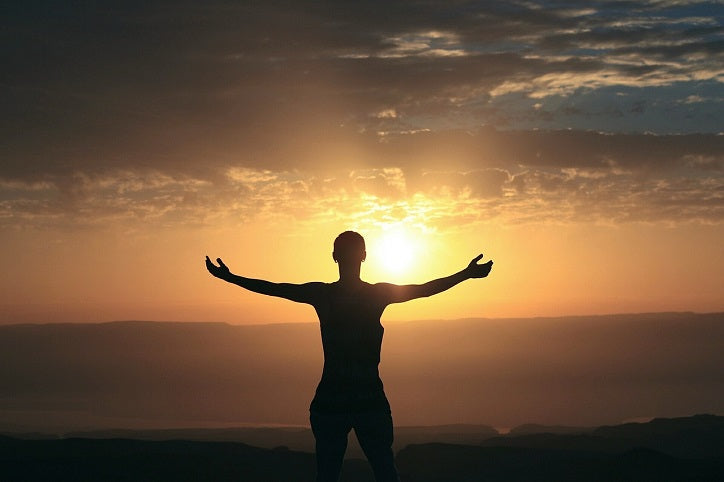Start your morning routine! What time do you wake up?
What time should you aim to wake up in the morning?
"Morning activities" (asakatsu) have been popular for the past few years.
One of the questions I often get asked is, "I want to be active in the morning, but what time is best to wake up?"
I'm sure there are many readers of Healing Plaza who would like to try their hand at morning activities.
This time, I would like to think about the time you should wake up in the morning to be active.
Short sleeper? Long sleeper? Or!?
Before we get into the main topic of the best time to wake up in the morning, it's important to know your sleep type.
Have you ever heard of the terms short sleeper, long sleeper, and valuable sleeper?
In fact, there is a tendency for the amount of sleep required to vary among the general population. 
Find out which of these three types you fall into.
The key point in both cases is that people can live a normal, long and healthy life with these required amounts of sleep.
You might be thinking, "I always get less than six hours of sleep on weekdays, so maybe I'm a short sleeper?"
If you sleep until noon on your days off in an attempt to catch up on sleep, you should be aware that this does not qualify as a short sleeper.
Waking up at 3 or 4 in the morning! What's the point of starting a morning activity that's too early?
As can be seen from the table above, approximately 90% of the population are valuable sleepers who require 6 to 9 hours of sleep.
In recent years, many of the books and magazine features related to morning activities have been based on the authors' own success stories, with the content such as "I succeeded by getting up at 3 or 4 in the morning! You can do it too!"
If an average sleeper were to consistently wake up at 3 or 4 a.m. while living a healthy lifestyle, they would end up going to bed around 8 or 9 p.m.
Is it possible to continue living like this?
Is sleep time wasted time?
Many people who use short sleep techniques and want to get up early in the morning to work hard, thinking, "I'll get up at 3 or 4 o'clock and do my best!", are probably busy people who think that sleep time is wasted.
If you are naturally satisfied with less than five hours of sleep, then this may be fine, but as mentioned above, short sleepers who can live a normal, long and healthy life on less than five hours of sleep are a significant minority, making up less than 1% of the population.
This means that for other people, waking up extremely early and continuing to sleep for short periods of time could have some impact on their health.
According to the National Time Use Survey (※1), the majority of Japanese people sleep between 11pm and midnight.
If a valuable sleeper who goes to bed around midnight continues to force themselves to get up at 3 or 4 a.m., they may end up damaging their health.
I'm also worried about the negative impact on mental health.
There is a hormone called cortisol, whose secretion peaks in the latter half of sleep at dawn, and cortisol has anti-inflammatory and immune-boosting effects.
If you're new to morning activities, you might be tempted to discard the latter half of your sleep as a waste and get up extremely early, but this is also something to think about.
When immune function weakens, it can easily affect your overall health, and even small amounts of dust mites or pollen can cause allergic symptoms, increasing the risk of developing atopic dermatitis or hay fever.
It is important not to force yourself to get up early in the morning in the name of morning activities.
*1: National Time Use Survey conducted by NHK, targeting 12,600 people aged 10 and over nationwide
The average person's limit for short sleep is 6 hours!
Now, I often get asked by value sleepers, who are normal sleepers, "I want to be a short sleeper, but is it possible?"
It is not impossible, but research both in Japan and abroad has shown that the maximum time that can be comfortably reduced is six hours.
Furthermore, during the process of sleep reduction, people may experience extreme daytime sleepiness, a feeling of sleep deprivation, and have trouble waking up for up to six months (!).
It depends on your lifestyle and motivation, but your physical condition can have a big impact on your mental state, and you may need to persevere with patience and mental strength.
It seems unlikely that it would be a good idea to try to become a short sleeper just to reduce your sleep by just one or two hours.
Considering body temperature rhythms and noise, it's important not to push yourself too hard!
Next, let's look at data on the rate of sleep disturbances reported by 1,000 shift workers.
As can be seen from this data, both night and early morning shift workers often complain of sleep disorders, tend to have reduced sleep time, and are more likely to complain about noise from family and outside.
As in (2), people who work early morning shifts to start work at 6:00 p.m. will need to wake up at 4:00 or 5:00 p.m., but this is the time when body temperature is generally at its lowest, and many people feel very sleepy even after waking up.
This can also affect your sleep satisfaction, such as feeling well-rested and rested.
It's only a matter of getting up two hours earlier, but you'll see that the impact on your body is greater than you can imagine. 
The key is to wake up at a time when you can enjoy the morning sun!
We have previously mentioned that basking in the morning sun is the key to waking up refreshed, but on the other hand, if you wake up in the dark, it will be harder to feel refreshed when you wake up.
In the summer, the sun rises around 4 a.m. in many areas, but the Japanese archipelago is long and vertical.
Even in summer, the further south you go, the more likely it is that the sun won't rise until around 6am.
Also, in most areas, it is as dark as night at 4 o'clock in autumn and winter.
Morning activities without the ability to soak up the morning sun can be difficult and stressful.
Even if you say, "I can fall asleep at 8 or 9 o'clock at night!", if you live with your family, there are many cases where your family members are not asleep and the noise from their daily lives can keep you from falling asleep. 
How to determine the best time to wake up in the morning...a complete summary!
Taking everything we've explained so far into consideration, try using the following as a reference to decide what time to wake up early for your morning activities.
1. Know how many hours of sleep you need
→ About 90% are valuable sleepers who sleep 6 to 9 hours, and less than 1% are short sleepers who sleep less than 5 hours.
2. Get to bed by at least midnight
Calculate the amount of sleep you need and find out what time you should wake up without straining your body.
→ If you are a variable sleeper and your daily bedtime is midnight, then 6am or later would be a reasonable time.
3. Your body clock can't keep up with fluctuations of more than ±2 hours.
Set a reasonable time so that you can wake up consistently, even on weekends
→If you go to bed around midnight, but wake up at 5 or 4 on weekdays for morning activities, and sleep until noon on weekends, your body clock will be out of sync, which will have a negative impact on your health from Monday onwards. Find a time that you can consistently wake up at, regardless of whether it's a weekday or weekend.
4. Make sure your set wake-up time is right for sunrise
→Check the local calendars at the National Observatory of Oki and see what time sunrise is happening in your area at this time of year, and get ready to get your morning started.
Just because morning activities are popular doesn't mean you should rush into thinking, "I have to work hard too!" or fall into an obsessive state of "I have to get up at 4 o'clock" or "I have to get up at 5 o'clock." It's important to recognize that there are risks to waking up so early that it harms your body. At the same time, if you tend to stay up late, try thinking about ways to get enough sleep without staying up late.
Think of it as a little morning activity... something fun, exciting, and enjoyable that you can continue, while ensuring you get the optimal amount of sleep for you!
It's best to not take yourself too seriously, not do anything reckless, and do things in moderation.


